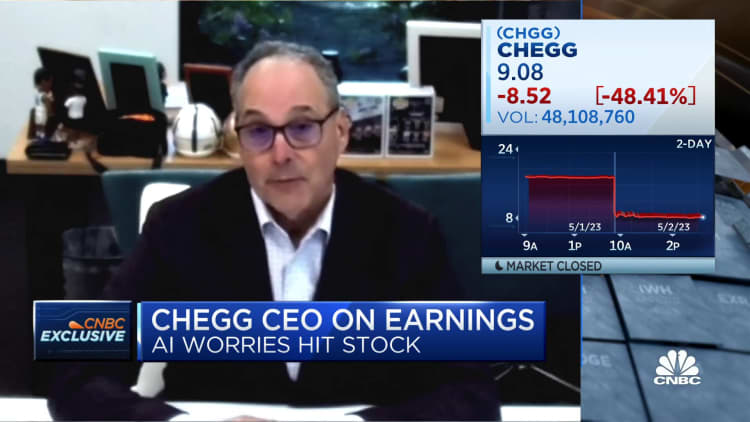
Chegg's 48% stock price plunge on Tuesday, driven by comments in the company's earnings report about the risks of artificial intelligence, was "extraordinarily overblown," CEO Dan Rosensweig told CNBC Tuesday.
The shares rose as much as 8% in extended trading during Rosensweig's TV interview, which followed the historic drop during regular market hours.
On Monday's earnings call, Rosensweig said ChatGPT, the suddenly popular chatbot from startup OpenAI, was "having an impact on our new customer growth rate." The company, which initially became well known for developing a textbook rental model for college students, has expanded into homework and exam help products.
Chegg said it was only providing guidance for the coming quarter and not for the full year because it's "too early to tell how this will play out." Rosensweig reminded investors, during the CNBC interview, that Chegg generates free cash flow and earnings, on an adjusted basis, and has "more than enough cash to pay off our debt."
The company also reported better-than-expected earnings and revenue for the first quarter.
"I think this is extraordinarily overblown, and I don't normally say that, I don't really talk about the stock price much," Rosensweig said.
Chegg is slated to launch Cheggmate, its GPT-4 powered AI platform, in May. Rosensweig said the combination of GPT and Chegg's trove of academic data could be transformative.
Rosensweig noted that ChatGPT struggles with delivering accurate answers, a phenomenon known as hallucination, and a problem in the academic world.
"Students can't be wrong when they do homework or when they learn things," he said. "ChatGPT is often wrong, and it's not going to be right anytime soon."


